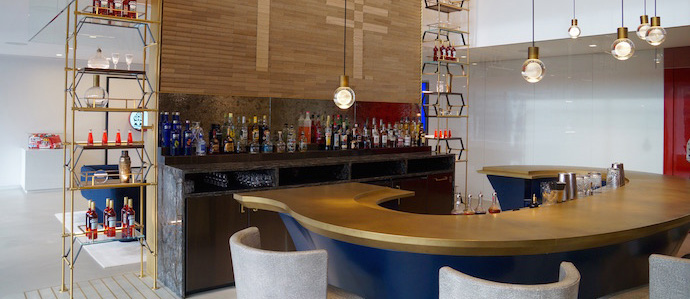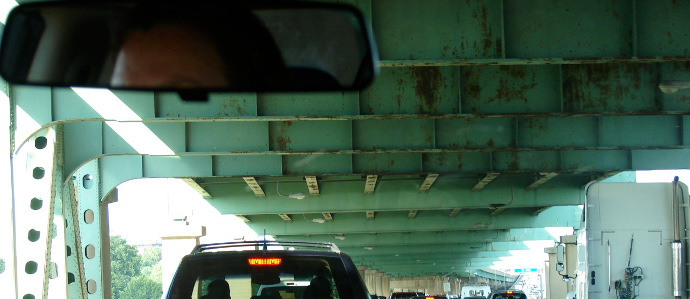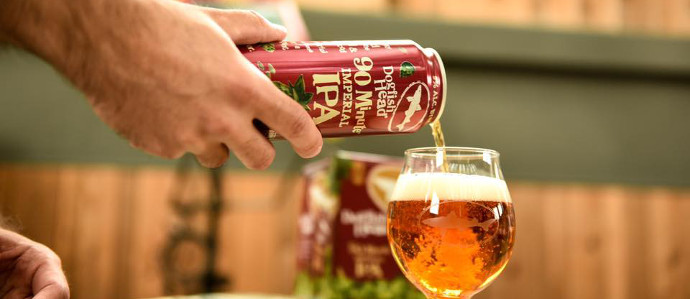
This kind of story surfaces every few years -- a restaurateur decides that tipping is unjust for any number of reasons and does away with it one way or the other, but there’s been no widespread success yet. Some of the examples are at best confusing and at worst, laughable.
Some cities have found success on a small scale -- Pittsburgh’s Bar Marco has reportedly enjoyed a successful six months since it abolished tipping and has pleased both servers and customers, but no other restaurants in the Steel City have followed along; The Public Option in D.C. opened with a no-tip policy and donates all attempted tips to charity; and Packhouse in Kentucky pays $10 an hour but encourages their servers to hit certain sales targets to earn a higher hourly rate. That being said, other restaurants have introduced no-tip policies and then change back. Bar Agricole and Trou Normand, which both got rid of tipping in early 2015, brought it back recently because they were having trouble holding onto servers.
There’s certainly plenty of arguments both for, and against, the entire policy of tipping. Forcing employees to depend on the crazy whims of a customer is often incredibly frustrating, and I say this as a former server myself. Tipping leaves the door open for either the best or the worst case scenario: you could walk away with an Instagram-worthy tip line if the head honcho of a large reservation is feeling incredibly generous, or you can spend a 6-hour lunch with only one table in sight and only make $10 that day. (Both of these have happened to me.) Little things like a rainy day or a concert a few blocks away can either adversely or positively affect a server’s paycheck, and while that can be great, the great times don’t necessarily outweigh the terrible. Plus, credit card tips are a huge money suck for servers -- tips come from a time where people slipped cash under the table, but those days are long gone, and American Express and Visa fees now lay claim to a pretty substantial amount that affects how much the server actually sees from that generous tip.
The other issue, which Meyer cites as his primary reason for getting rid of tipping in favor of a service fee on the check that will raise prices slightly, is that the huge pay disparity between the “front of the house” (servers, bartenders) and the “back of the house” (chefs) is getting out of control. Chefs make significantly less money than servers, and as this trend continues, it’ll certainly be harder to hire chefs than servers. Meyer argues that by evening out pay for everybody in his restaurants, he’ll end up with more employee longevity than a restaurant with standard tipping, and the employees he keeps will be happier and work harder knowing that their wage will be standardized.
It’s hard to say whether or not this will work, as frankly, it hasn’t yet on any large scale at any restaurant in the U.S. European countries encourage tipping as an extra bonus for employees who already make good wages, but the U.S. has stubbornly stuck to the tipping system for so long that it seems impossible to overthrow it at this point. Every time the concept of a reward-based paycheck for restaurant workers is threatened, people immediately bristle (Richard Cohen penned a pro-tip argument this week for the Washington Post), and for those of us who believe, myself included, that a no-tipping system could ultimately benefit the entire restaurant industry if instituted correctly, it seems puzzling as to why this thought is met with such hostility. Do people really believe that chefs should toil in the kitchen day and night for less pay, or that a cranky table should dictate whether or not a server can pay their electric bill that month? Yes, change is hard, but that doesn’t mean it should go unattempted. And for those of you anxious about the uptick in prices, if you were already tipping a decent amount of money, you will be paying exactly the same thing, but without the headache of calculating 20%.
Tipping may well go the way of the dinner jacket and aspic, but it’s going to take a long time, and we, as a country, will likely revert back to the comfort of a system we understand rather than one we don’t a few times before that happens. This writer believes that Meyer’s first steps are admirable and well-intentioned. Whether or not he succeeds or ends up adding that tip line back onto his checks, he’s still making a point about a change we should see through, and ultimately, the hope is that others might follow his lead.
Tags: Dinner, Education
Feedback
The Drink Nation Presents: The Home Bar Project
Have you ever dreamed of having an amazing home bar, filled with bottles you actually use and the tools you need to execute a fine crafted cocktail? E...read more ›
Canada's Next Level Response to Tariffs Removes All U.S. Wine & Spirits From the Shelves
Part of Canada's response, their retaliation, to the tariffs imposed o...read more ›
The History of The Boulevardier Cocktail - and How You Can Make it at Home
In this history segment, we take a closer look at a classic cocktail: The Boulevardier....read more ›
Behind the Bar: Liana Oster of Dante
For this exciting installment of Behind the Bar, we had the incredible opportunity to sit down with Liana Oster, the head bartender at Dante in New Yo...read more ›
Pabst Blue Ribbon Launches Blue Ribbon Whiskey in Select US Markets
PBR has launched their own whiskey. Let's keep an open mind and see what is inside this bottle....read more ›
The Master Sommelier Scandal is Now the Subject of a New Investigative Series
There's a new investigative series about one of the biggest scandals to ever hit the wine world....read more ›
Using Peas to Make Gin Might Lead to More Environmentally Friendly Spirits, Studies Show
Scientists may have discovered a more environmentally friendly way to make one of the world's most popular spi...read more ›
Drink a Classic Cocktail for a Good Cause During Negroni Week, June 24-30
Negroni Week 2019 is June 24-30, so drink this classic cocktail for a good cause....read more ›
What to Do if Your Uber, Lyft, or Cab Driver Ever Strays From Your Destination or Makes You Feel in Danger
If you're taking an Uber, Lyft, or cab and feel unsafe, there are steps you can take to protect yourself....read more ›
Behind the Bar: Kat Corbo of The Study & Winner of Speed Rack 2019
This time on Behind the Bar, we spoke to Kat Corbo of The Study, who recently won Speed Rack 2019....read more ›
Boston Beer & Dogfish Head Have Merged in a $300 Million Deal
In a huge move for the American craft beer community, Boston Beer and Dogfish Head have agreed to a merger valued at $300 million dollars. ...read more ›



















